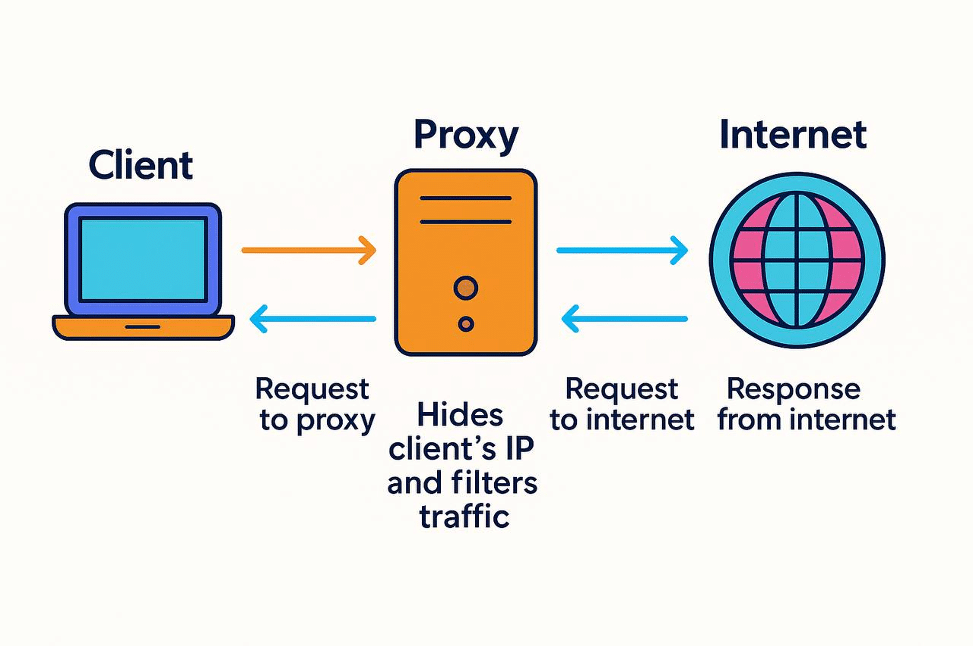Let’s begin with this: if you’ve ever attempted to remain anonymous on the internet, there’s a good chance you’ve heard of an online proxy. In a world where every click seems like it’s being monitored, it’s little wonder that these tools are increasing in popularity. From casual surfing to actual business procedures, proxy servers have become a part of our online routine in silence. And to be honest, once you use them, it’s impossible to even go back to the traditional method of surfing the web.
What Exactly Is an Online Proxy?
Imagine mailing a letter but not wishing the recipient to know where it came from. You hand it over to someone else, and they remail it after rewrapping it. That’s basically what a proxy does online. It steps in between the web resource and you, hiding real location and helping you slip through unnoticed. Not only does this keep your persona private, but it also adds a thin (but useful) veil of security to everything you do online.
Behind the Scenes: How Proxies Work
From a technical standpoint, the device does not communicate directly with websites when utilizing a proxy. Instead, it chats with the proxy server first, and the proxy handles the rest. It’s like hiring a spokesperson to speak on your behalf. This has a lot of perks — like slipping past geo-blocks or sidestepping network filters that think they know better than you. Some proxies are even smart enough to flag sketchy content and keep it from reaching to screen. I mean, who wouldn’t want a bodyguard like that?
Why Bother? Perks of Using Online Proxies
- Keep Your Identity Under Wraps, no need to shout your IP address to the world.
- See the web without borders and access content as if you lived halfway around the globe.
- A Bit of Extra Armor: many proxies block shady stuff before it reaches you.
- Speed Things Up! Some proxies cache sites, so you don’t have to reload the same content again and again.
Real-Life Examples of Proxy Use
Let’s say you’re on the road and want to watch a favorite television show — but it’s only broadcasting back home. Enter the proxy. Or say you own a small company and have to anonymously surf the websites of competitors. That’s another proxy victory! Maybe it’s for security, access, or just some peace of mind, but uses are more prevalent than y’all might know.

At Work: Proxies for Business Security
Companies are rightfully fixated on preventing data breaches. It’s understandable: one wrong click can create chaos. That’s why many of them use proxies to help control internet access and sniff out weird behavior in the network. It’s not just about blocking social media anymore; it’s about spotting red flags before they become full-blown threats.
What’s Next for Proxy Tech?
If you think proxies are already pretty cool, wait until you see where they’re headed. With AI stepping in, some proxies are learning to detect patterns in behavior — catching threats before they strike. And as they start playing nicer with other cybersecurity tools like VPNs and firewalls, we’re looking at a future where proxies are less of an add-on and more of a necessity.
Curious to dive deeper? Take a look at our dedicated online proxy service and API Scraper page to explore how these toolware can help you stay a step ahead online.
